Day 7: Phishing Awareness – The Bait You Don’t Want to Bite
 Lawrence Juma "Jumalaw98"
Lawrence Juma "Jumalaw98"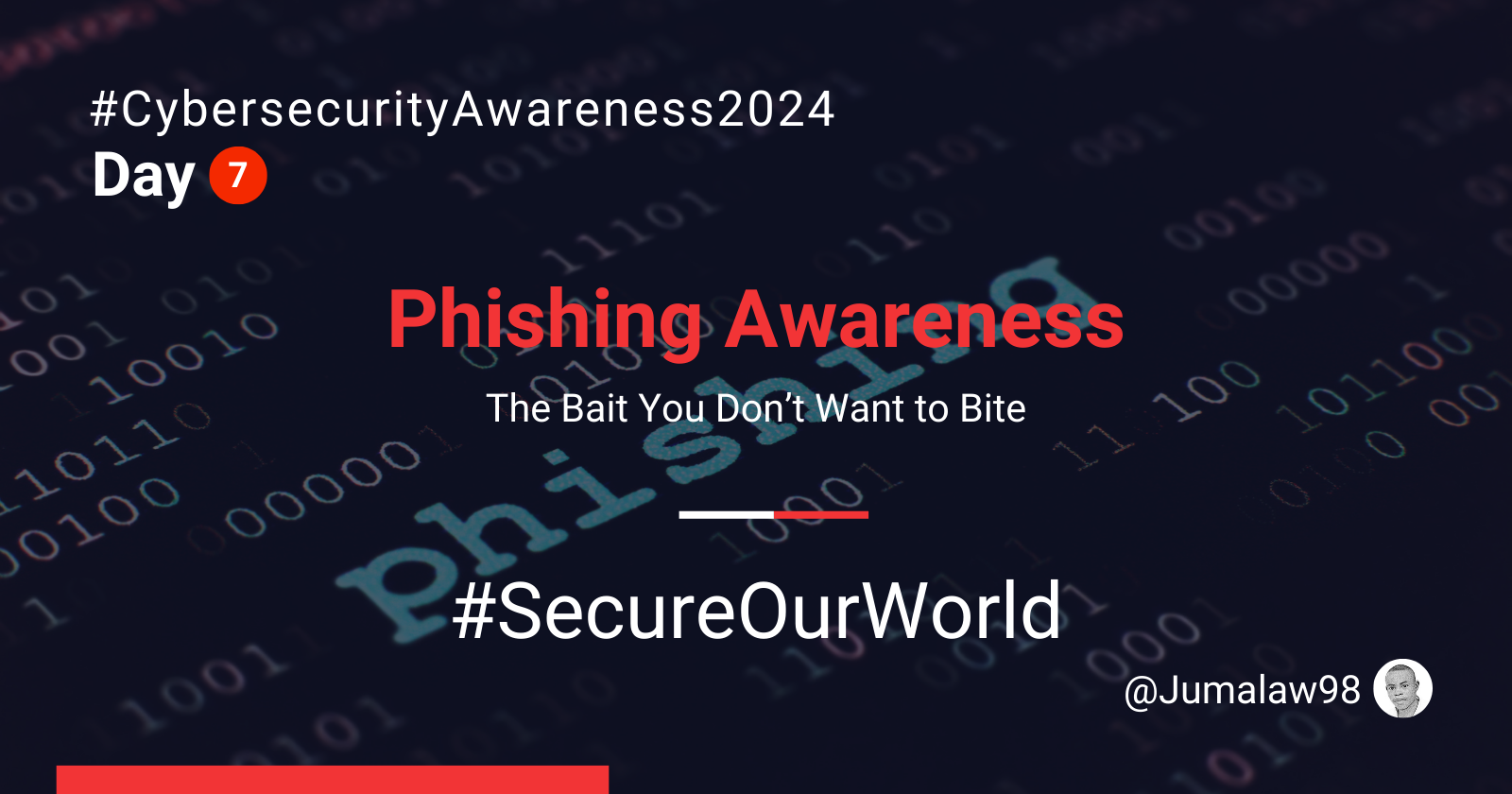
"If your boss sends you an email asking for 100 M-Pesa vouchers, it's probably not because he's planning the end-of-year staff party."
On Day 7 of #CybersecurityAwarenessMonth, we're focusing on Phishing Awareness to help you spot deceptive messages that trick you into disclosing personal information or sending money to scammers.
Under the theme 'Secure Our World,' it's important to recognize and report phishing attempts to stay safe online.
What is Phishing?
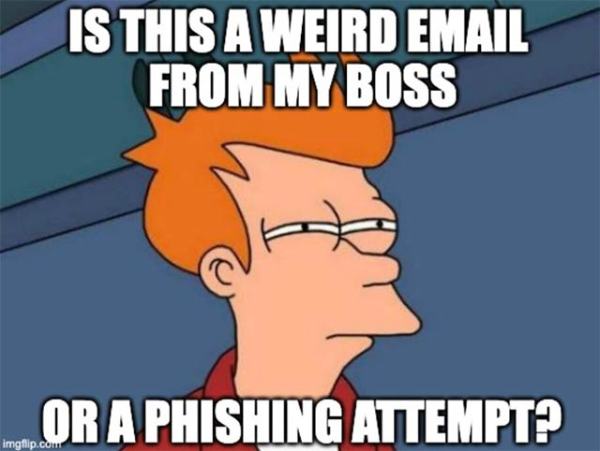
Phishing is a type of cyberattack where scammers disguise themselves as trustworthy entities (like your bank, a popular website, or even your boss) to trick you into providing sensitive information. These attacks often come in the form of an email, text message, or even a phone call, with the aim of:
- Stealing personal or financial data.
- Installing malware on your device.
- Gaining access to your accounts.
Phishing emails might look like legitimate messages, but beneath the surface, they’re bait designed to hook unsuspecting victims. And just like in fishing, it's hard to get free without getting hurt once you take the bait.
Common Types of Phishing
There are several types of phishing attacks you might encounter:
Email Phishing: Scammers send fake emails from legitimate sources to trick you into clicking on a harmful link or attachment.
Spear Phishing: Tailored phishing attacks targeting specific individuals or organizations using personal details to appear convincing.
Smishing (SMS Phishing): Scammers send fraudulent texts with malicious links.
Vishing (Voice Phishing): Scammers try to steal sensitive information through phone calls, impersonating trusted entities.
Whaling: Phishing targeting high-profile individuals with severe consequences if successful.
How to Identify a Phishing Attempt
Phishing emails can be difficult to spot, especially if the attackers have done their homework. However, several key warning signs can tip you off to a potential scam:
Too Good to Be True: If it seems too good to be true, it probably is. Scammers use excitement or urgency to make you act without thinking.
Sense of Urgency: Phishing emails create panic or urgency, prompting you to act quickly before realizing something is wrong.
Suspicious Links: Before clicking on any link in an email, hover over it with your mouse to check the URL. Don’t click if it looks suspicious.
Unusual Sender: Be cautious of emails from unknown or unexpected senders. Check the email address carefully for small differences. (e.g., “supp0rt@amaz0n.com” instead of “support@amazon.com”).
Poor Grammar or Spelling: Spelling mistakes or odd grammar in emails are red flags.
Unsolicited Attachments: To prevent malware or information theft, avoid opening attachments from unknown or suspicious sources.
What to Do If You Suspect a Phishing Attempt
If you receive a suspicious email or message, follow these steps to protect yourself:
Don’t Click!: Avoid clicking links or opening attachments if you're unsure about an email.
Verify the Source: If the email is from a company you do business with, visit their website directly or call using a verified phone number.
Report the Phishing Attempt: Use available methods to report phishing attempts, such as clicking "Report phishing" in Gmail.
Delete the Email: After reporting, delete the email to remove the temptation to revisit it. Retail history.
The Importance of Reporting Phishing Attempts
As the saying goes, “See something, say something.” Reporting phishing attempts helps keep others safe. Cybercriminals constantly evolve their tactics, so your vigilance could prevent someone else from falling into a scam.
If you’re working in an organization, you should report phishing attempts to your IT or cybersecurity team. Many companies use phishing simulations as employee training to keep everyone on their toes. The more people are aware, the harder it becomes for phishers to succeed.
Can you tell if you're being phished?
Practice with Google phishing quiz: https://phishingquiz.withgoogle.com/
| Fake message | Mpesa Message | Phishing mail |
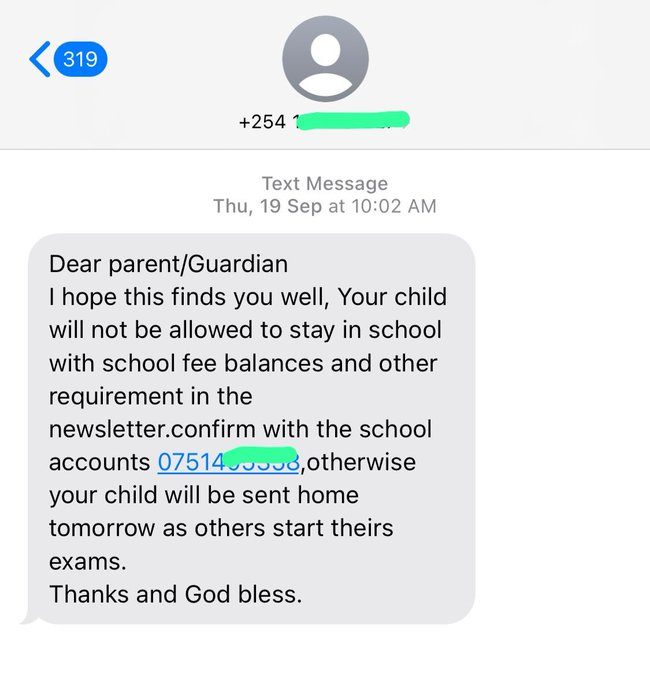 Screenshot Screenshot | 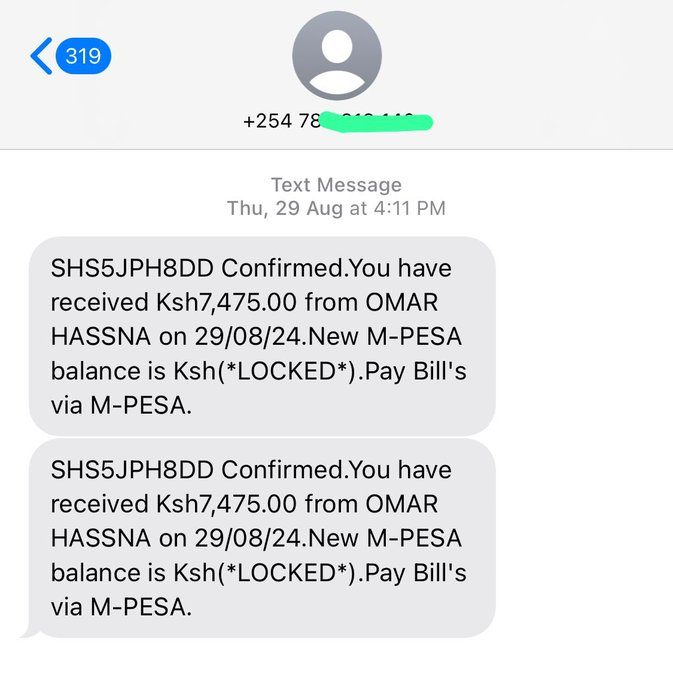 screenshot screenshot | 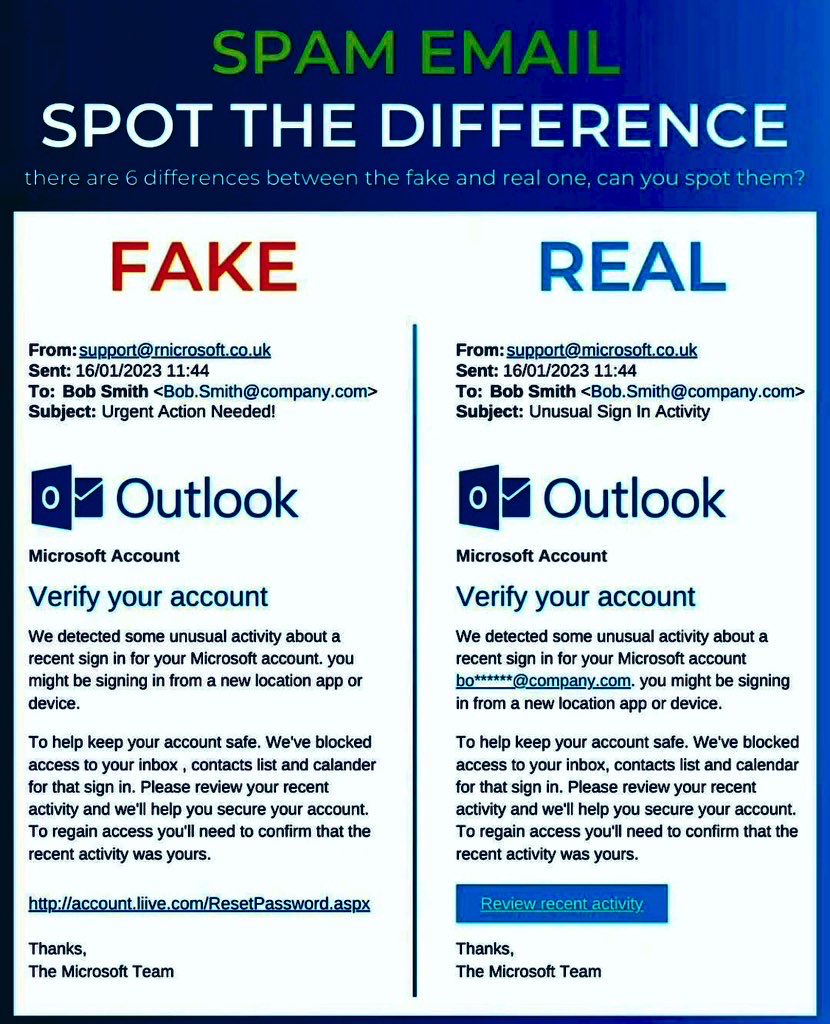 Courtesy: SecurityTrybe Courtesy: SecurityTrybe |
Phishing attacks are like the digital version of a fisherman casting a wide net. The good news? You don’t have to be one of the fish that gets caught. By learning how to spot phishing attempts and reporting them promptly, you’re playing a critical role in securing our world against cyber criminals.
On this day, take a moment to refresh your phishing detection skills and share this knowledge with your family, friends, and colleagues. Because awareness is our greatest weapon in the fight against phishing!
#Stayvigilant, #staysafe, and don’t take the bait!
#CybersecurityAwarenessMonth #StopPhishing #BeCyberSmart #OnlineSafety #ProtectYourData
Subscribe to my newsletter
Read articles from Lawrence Juma "Jumalaw98" directly inside your inbox. Subscribe to the newsletter, and don't miss out.
Written by

Lawrence Juma "Jumalaw98"
Lawrence Juma "Jumalaw98"
Growth mindset in the tech field, Front-end "React Js, Vue Js", Project Manager, Digital Marketer.
